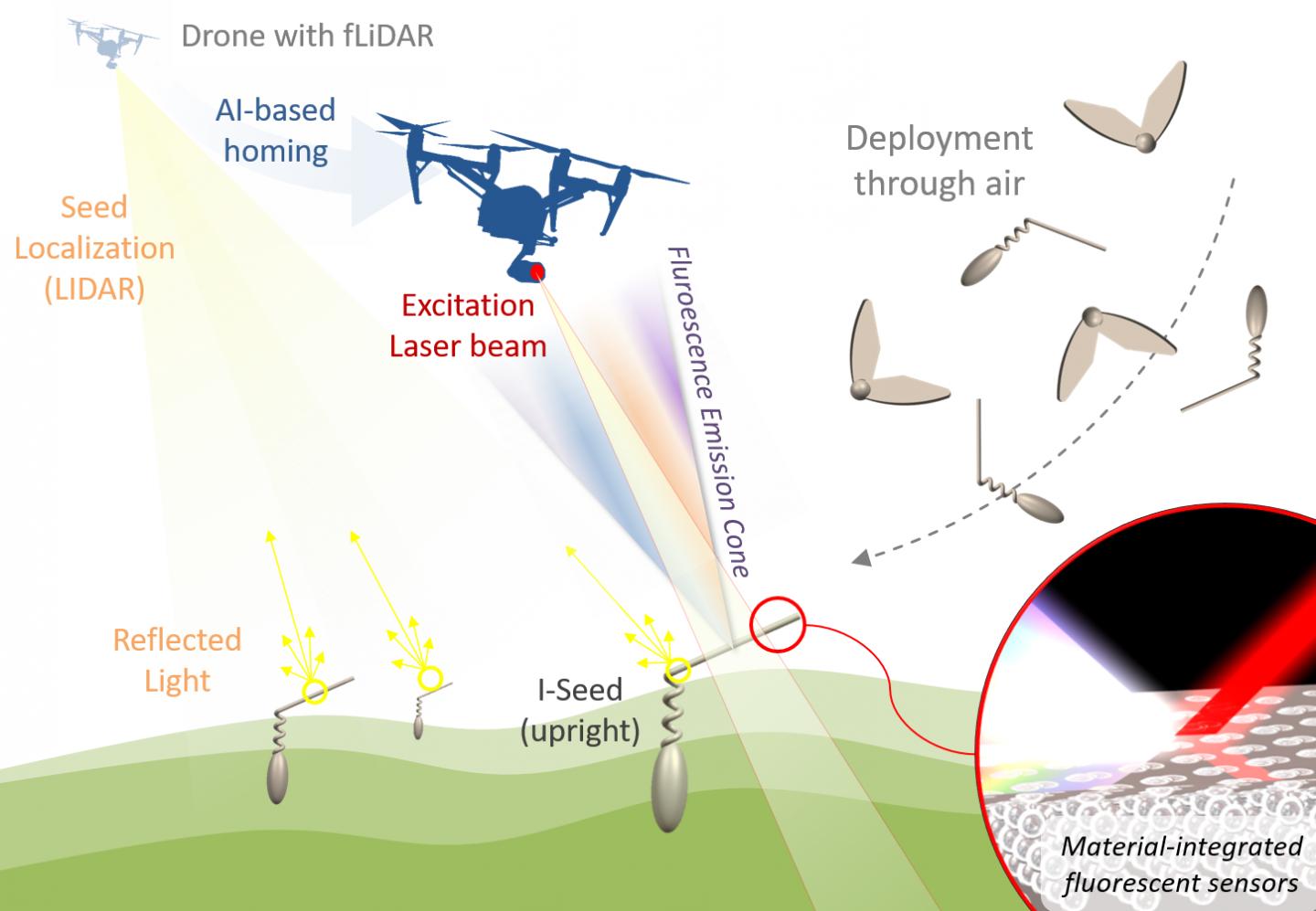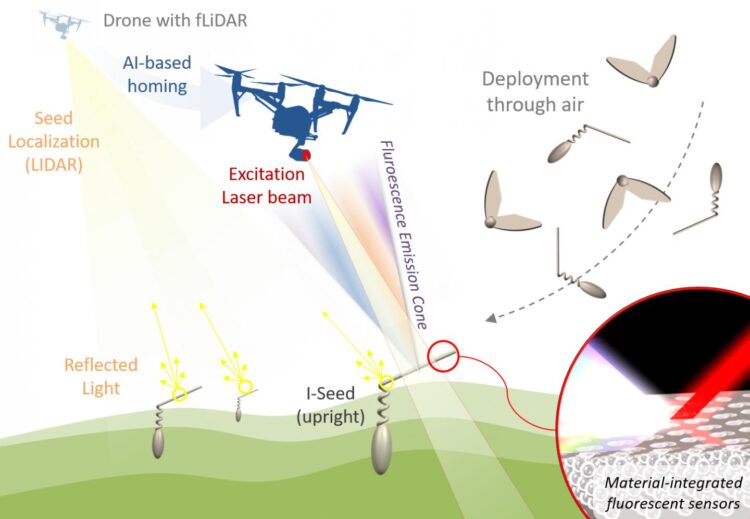The project will develop intelligent seeds able to monitor environmental parameters. Coordinated by IIT’s researcher Barbara Mazzolai, it involves other 5 partners in Europe. The project has been funded with grant of 4-million euros by the EU.

Credit: IIT-Istituto Italiano di Tecnologia
Genova (Italy), 3rd March 2021 – How important is technology to understand climate change and protect the environment? I-Seed project will combine bioinspired soft robotics, material science and artificial intelligence to develop new innovative robots mimicking plant seeds behaviour and able to monitor soil and climate parameters, like the presence of pollutants, humidity, CO2 levels, temperature and quality of waters. These innovative “intelligent seeds”, named I-Seed robots, will be biodegradable, thus respecting the environment.
I-Seed has been funded with a total grant of 4-million euros by the European Union in the framework of FET Proactive Environmental Intelligence 2020 call and it will be coordinated by Barbara Mazzolai, director of the Center for Micro-BioRobotics (CMBR) of IIT-Istituto Italiano di Tecnologia (Italian Institute of Technology). The project will last 4 years and 5 European partners are involved coming from Italy, Germany, Netherlands and Cyprus.
As Leonardo da Vinci did with his “aerial screw”, researchers will take inspiration from plant seeds which use flying dispersal mechanism and burrowing strategies to penetrate into the soil, such as Samara seeds and Erodium cicutarium seeds, respectively. Plants use seeds dispersal abilities in order to survive and replicate; this aspect is crucial for plant ecology and for securing the plant wellbeing of the future generations. I-Seed project, therefore, will focus on the study of plant seeds morphology, their dispersion and also on the study of multi-functional biodegradable materials. The main goal is to obtain two types of self-deployable and biodegradable soft miniaturized robots with different features: I-SEED ERO and I-SEED SAM.
I-Seed ERO will be a soft robot able to penetrate in the soil through a movement made possible by its particular “bottle screw” shape, while I-Seed SAM robot will fly and operate in the soil surface. The procedure of dispersal of the seeds will occur with the help of a drone that will spread them on the ground, such as cultivated fields or prairies; through the use of a specific software, researchers will be able to track their precise position and monitor ground conditions. In order to facilitate the tracking procedure, the intelligent seeds will be fluorescent and drones will use a LIDAR system to detect seeds from long distances. I-Seed robots will permit to reach geographical areas where at the moment is not present any form of environmental monitoring.
“Understanding, monitoring, restoring and preserving the equilibrium of natural ecosystems is necessary to safeguard species biodiversity” comments Barbara Mazzolai, coordinator of the I-Seed project and Associate Director of Robotics at IIT-Istituto Italiano di Tecnologia. “With a strongly multi-disciplinary team, I-Seed aims to develop new and environmentally-responsible technologies inspired by the morphology and dispersion abilities of plant seeds to protect and improve the quality of air, water, and soil, and effectively manage natural resources.”
Both I-Seed robots will be used for detecting environmental parameters through the application of multifunctional materials that play as sensors and actuators at the same time. These innovative robotic seeds will degrade thanks to the polymers used to for their production, combining also soft and rigid materials for the moving parts (PLA, PLC, Hydrogel materials). Researchers will, then, implement the sensor networks with an innovative, low-cost and environmentally responsible structure due to their biodegradable materials.
The project has started in January 2021 and its consortium, coordinated by the Italian Institute of Technology, includes 5 European partners: Leibniz Institute for New Materials (Germany), Consiglio Nazionale delle Ricerche (Italy), Scuola Superiore Sant’Anna (Italy), Wageningen University (Netherlands), and Olyseus Innovations Ltd. (Cyprus).
###
Media Contact
IIT’s Foreign Press Office – Valeria delle Cave
[email protected]





